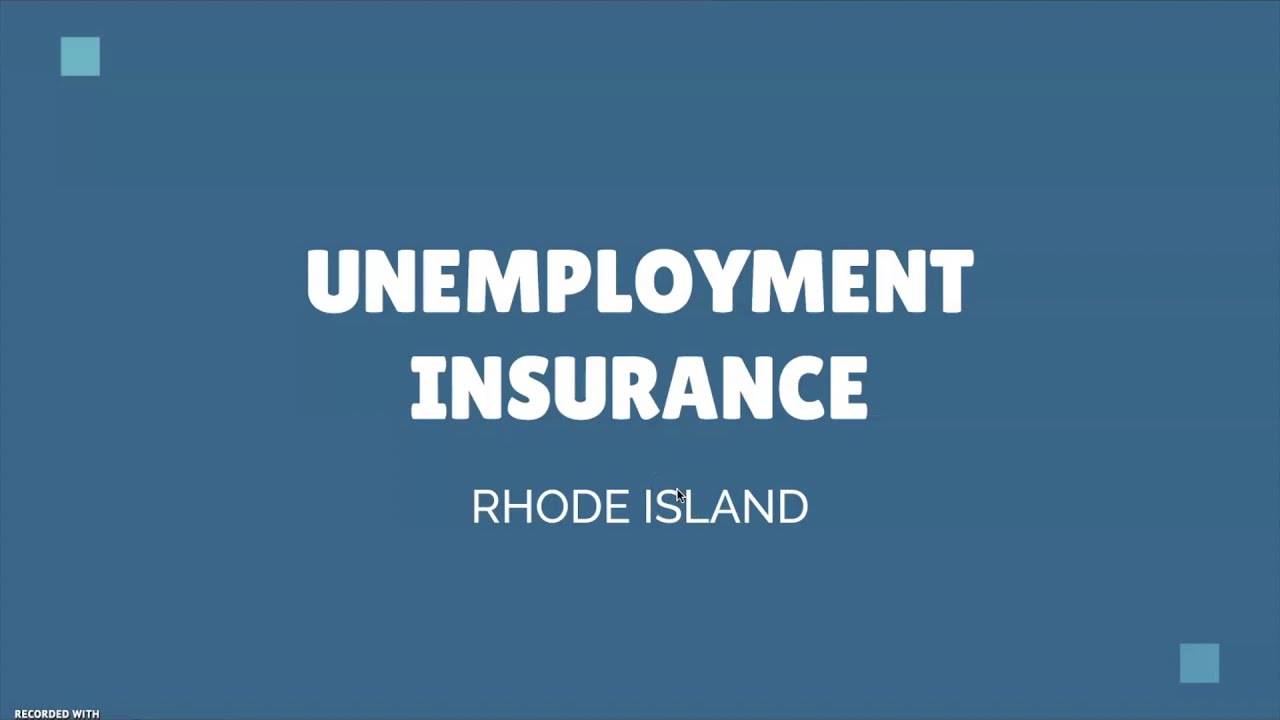Introduction to Unemployment Benefits in Rhode Island
Unemployment benefits play a crucial role in supporting individuals who have lost their jobs and are actively seeking new employment. In the state of Rhode Island, the Department of Labor and Training (DLT) administers the unemployment insurance (UI) program, providing financial assistance to eligible workers during their period of unemployment.
Understanding the Eligibility Requirements
To qualify for unemployment benefits in Rhode Island, individuals must meet certain criteria. Firstly, applicants must have become unemployed through no fault of their own. Secondly, they must have earned a minimum amount of wages during a specified period, known as the "base period," which is generally the first four of the last five completed calendar quarters. Additionally, applicants are required to be available and actively seeking suitable employment opportunities.
The Duration of Unemployment Benefits in RI
The duration of unemployment benefits in Rhode Island varies depending on multiple factors. As a general rule, eligible individuals can receive benefits for a maximum of 26 weeks. However, certain circumstances, such as high unemployment rates, may trigger an extension of these benefits. It is crucial for claimants to familiarize themselves with the specific conditions and requirements to determine the length of their unemployment benefits.
Exploring the Different Benefit Programs
Rhode Island offers several benefit programs to support individuals during unemployment. The primary program is the Unemployment Insurance program, which provides financial aid to eligible workers. Additionally, there are other programs available, such as the Pandemic Unemployment Assistance (PUA) for those who do not qualify for regular UI benefits, and the Extended Benefits (EB) program, which provides additional weeks of compensation during periods of high unemployment.
Unemployment Insurance Compensation Extension
In times of elevated unemployment rates, the state may trigger an extension of unemployment benefits through the Emergency Unemployment Compensation (EUC) program. This program allows eligible individuals to receive additional weeks of unemployment benefits beyond the standard 26-week period. The availability and duration of this extension are determined by the state of Rhode Island based on prevailing economic conditions.
Factors Affecting Unemployment Benefit Duration
Several factors can influence the duration of unemployment benefits in Rhode Island. The primary consideration is the claimant’s base period earnings, which determine the maximum benefit amount they can receive. Additionally, the unemployment rate in the state plays a significant role in triggering extensions and determining the overall duration of benefits. It is important to monitor the labor market conditions and stay informed about any changes in benefit duration.
Calculating the Maximum Benefit Amount
The weekly benefit amount a claimant can receive is determined by their earnings during the base period. In Rhode Island, the formula to calculate the weekly benefit amount is as follows: divide the total wages earned in the highest-paid quarter of the base period by 26. The resulting amount cannot exceed the maximum weekly benefit amount, which is set by law.
Partial Benefits and Alternative Work Arrangements
In certain cases, individuals may be eligible for partial unemployment benefits if they are working reduced hours or earning wages lower than their weekly benefit amount. This enables workers to supplement their income while still receiving some unemployment assistance. Additionally, Rhode Island provides alternative work arrangements, such as the WorkShare program, which allows employers to reduce employee hours while still providing partial unemployment benefits.
Reporting Requirements and Continued Claims
To continue receiving unemployment benefits in Rhode Island, claimants must meet certain reporting requirements and file continued claims on a weekly basis. This includes providing information about job search activities, earnings from any employment, and any other changes in their circumstances that may affect their eligibility. Failure to meet these reporting obligations may result in the termination of benefits.
Reapplying for Unemployment Benefits in RI
In the event that an individual exhausts their unemployment benefits or returns to work but becomes unemployed again, they may need to reapply for unemployment benefits in Rhode Island. This involves filing a new claim and meeting the eligibility criteria once again. The process may differ slightly from the initial application, so it is important to carefully follow the instructions provided by the DLT.
Appeals and Disqualifications: Know Your Rights
While Rhode Island strives to provide benefits to eligible workers, there may be situations where a claim is denied or benefits are discontinued. In such cases, individuals have the right to appeal the decision. The appeals process allows claimants to present their case before an administrative referee who will review the evidence and make a determination. Familiarizing oneself with the appeals process and understanding their rights is crucial for those who believe they have been wrongly denied benefits.
Additional Resources and Support for Job Seekers
The state of Rhode Island recognizes the challenges faced by job seekers and offers additional resources and support. The DLT provides various job training programs, career counseling services, and job placement assistance to help individuals find suitable employment opportunities. Additionally, the DLT website offers a wealth of information and resources to guide individuals through the unemployment process and support their journey towards reemployment.





